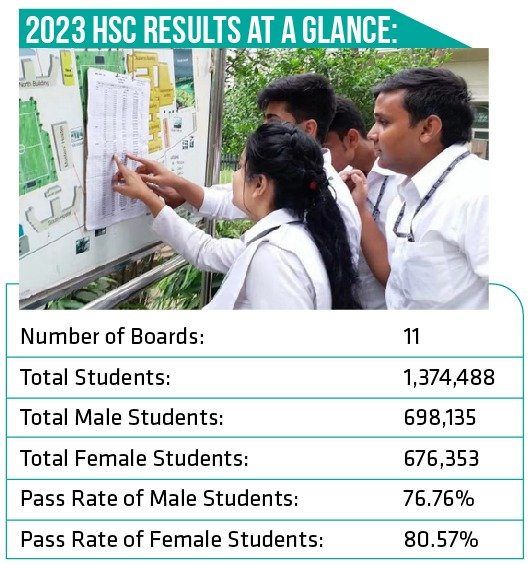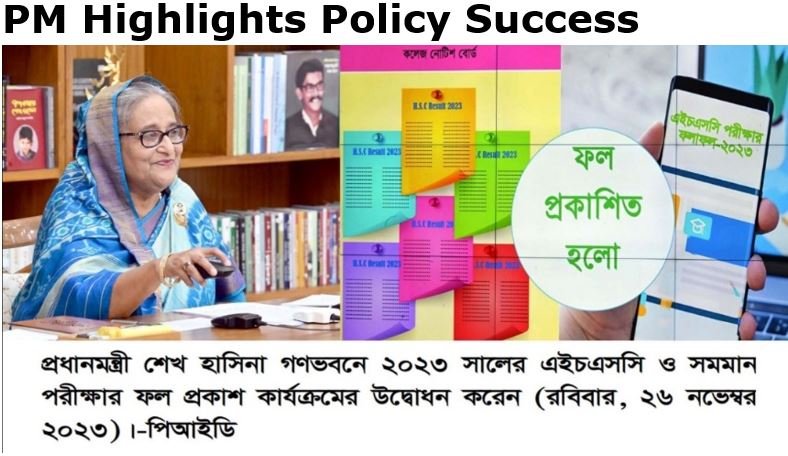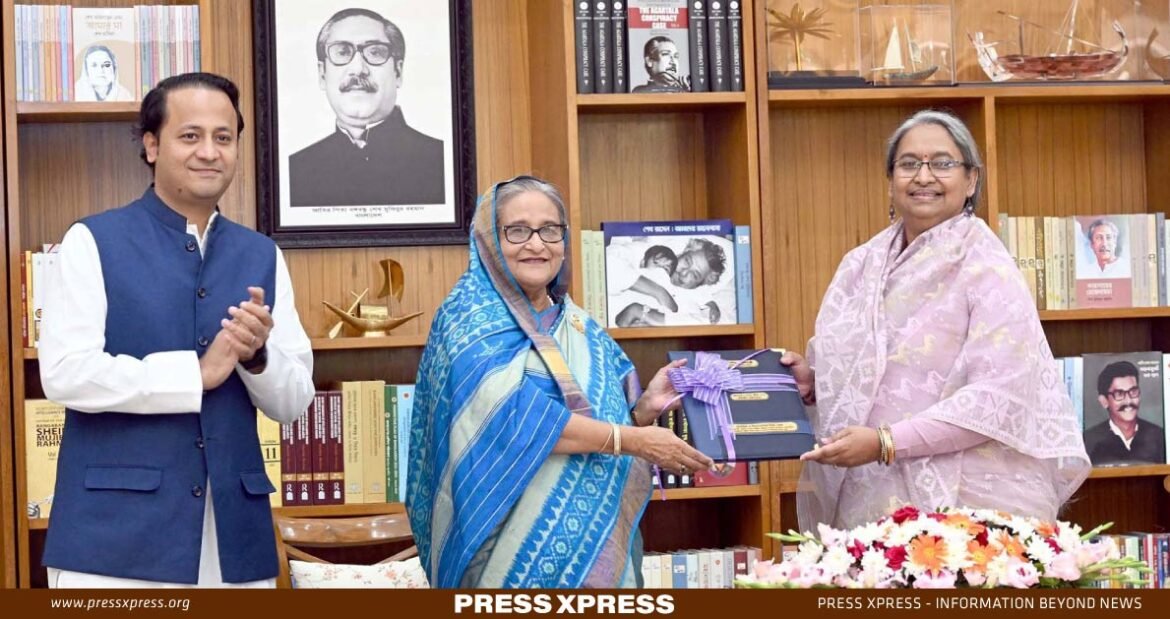During the BNP-Jamaat reign, the literacy rate dropped to 43% from 65% which during the Awami League government’s tenure increased to 75.6%
Prime Minister Sheikh Hasina has congratulated female students and thanked them for their continued high performance in HSC exams. She emphasized the necessity of education for women’s empowerment while unveiling this year’s HSC results virtually from Ganabhaban in the capital at 10 am today (Sunday).
Female Pass Rate 3.81% Higher
Citing that this year’s pass rate for female students is 3.81% higher than their male counterparts, the PM said, “The pass rate for female students is higher than their male counterparts, I thank the female students for this. We always talk about gender equality, but now, it seems, the opposite has happened as the females have overtaken the males. We must also find the cause behind this.”
This Year’s Results

In a remarkable academic feat this year, a staggering 13,74,488 students participated in the Higher Secondary Certificate (HSC) and equivalent examinations held from August 17 to September 25. Of them, 6,98,135 are boys and 6,76,353 are girls. This balanced representation underscores the growing trend of gender equality in educational pursuits.
PM Highlights Policy Success

During the unveiling of the results, the PM highlighted several key achievements. Noting that this was the first “post-pandemic full syllabus” HSC exam, the PM underscored the efficiency and dedication of the Education Ministry by thanking them for continuing the tradition of publishing exam results within 60 days. She also highlighted her government’s policies as the prime catalyst to continued educational progress. These include free and timely delivery of educational books, broadcasting classes taken by famous and specialized educators, and scholarships amongst others.
BNP’s Failure and Awami League’s Rescue
In her speech, the PM described how the BNP-Jamaat-led alliance had driven the country’s education sector downhill. “During the BNP-Jamaat reign, they reduced the literacy rate from 65% to 43%,” the PM stated. It is worthy of mention that the literacy rate has now increased to 75.6% in 2022 as a result of various initiatives of the present government.
To achieve such a feat while also adapting to “Digital Bangladesh” in its curriculum displays the government’s dedication to building the country’s future.
Targeted Policies for Women Empowerment
In Bangladesh, the journey towards achieving gender equality has been a test marked by persistent challenges and subsequent triumphs. Overcoming societal norms and grappling with the inadequate implementation of protective laws, women in the country have faced an uphill battle to secure equal status to their male counterparts. A pivotal shift was witnessed as the Awami League government, under the leadership of Prime Minister Sheikh Hasina, prioritized the expansion of elementary education, striving to break gender barriers.
Mid-Day Meal Program: In a bid to further fortify the educational landscape, the government introduced the Mid-Day Meal Program in 2010. This initiative provided 75 grams of fortified biscuits to approximately 3 million schoolchildren across 104 upazilas. Officials from the primary education ministry reported a 6.6 percent increase in attendance and a noteworthy 6 percent reduction in dropouts within schools covered by the program.
National Education Policy 2010: Under the exemplary leadership of Prime Minister Sheikh Hasina, the government unveiled the eight-year-long National Education Policy in 2010. The policy underscored a commitment to gender equality within classrooms. Beyond merely encouraging female participation, the policy tackled social barriers hindering girls’ access to education, with a paramount focus on minimizing gender inequities.
Consistent Performance
In the grand education scheme of Bangladesh, the HSC and equivalent examinations play a pivotal role in shaping the future of Bangladesh. The present results will not only reflect the academic achievements of the students, but a reality to serve barometer for the effectiveness of our education system. The continued performance of the students, particularly the females, highlights the government’s success in implementing educational policies.
The results of these long-term policies and the wisdom and foresight of Prime Minister Sheikh Hasina can be seen in the latest HSC results. The diversity of experiences and backgrounds represented in this vast pool of candidates is a testament to the inclusivity and accessibility of education in our society.


